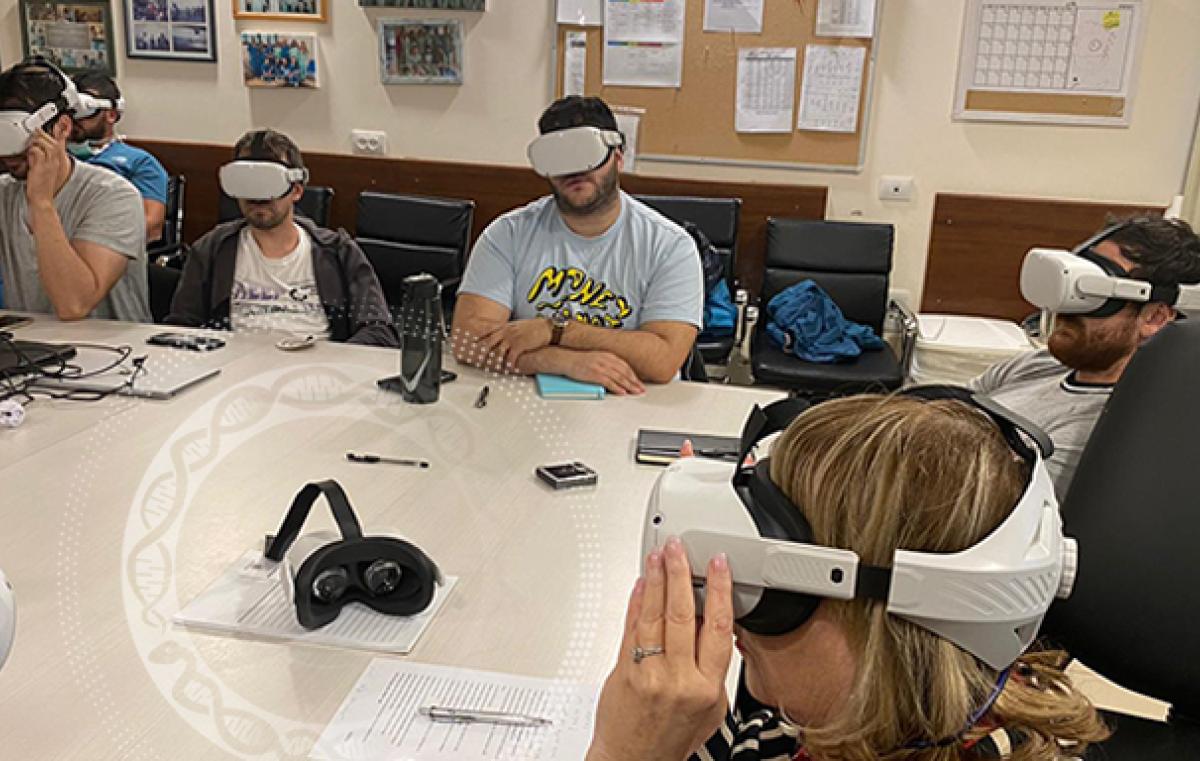VR for Strengthening Future Doctors' Empathy Skills
BIU's Azrieli Faculty of Medicine launches an innovative VR project to enhance future doctors’ empathy skills

Bar-Ilan University's Azrieli Faculty of Medicine, in collaboration with the Northern Medical Center in Tiberias, developed a unique and innovative project to strengthen doctors’ empathy skills through the use of virtual reality (VR) technology. The project, which includes a workshop followed by research, is led by Dr. Yuri Perlitz, director of the clinical department in the faculty and head of the maternity and neonatal department at the Northern Medical Center, and Dr. Nomy Dickman, advisor to the dean for innovative teaching and head of the unit for evaluation and teaching promotion, together with faculty graduate Dr. Doron Kon-Schwartz.
"In this workshop, we focus on the case of breaking bad news as a tool for demonstration, and show how an empathetic doctor delivers the news compared to a non-empathetic doctor. We do this in an interactive simulation, where the viewer can choose their point of view: that of an empathetic doctor or a non-empathetic doctor, and a patient responding to an empathetic doctor or a non-empathetic doctor," explains Dr. Dickman.
Empathy is a vital trait for doctors, who deal with a wide range of emotions, especially in situations where they have to deliver news that is not positive. The workshop is intended for all students studying in clinical rotations at hospitals as part of their medical studies at the Azrieli Faculty of Medicine, and soon also for medical staff. So far, about 60 students have participated in the project. The application was developed, designed and produced by Virtualion AR/XR studio.
The workshop begins with students filling out a questionnaire developed at Jefferson University, to asses students' approach to empathy before their participation. Afterward, the students watch two videos using VR glasses, one showing a doctor delivering negative news to a patient in an empathetic way, and another in a non-empathetic way. Next, the students watch two more videos, this time from the patient’s point of view. In one they experience how the patient responds to the news received from the empathetic doctor, and another where the doctor isn’t empathetic.
After watching the VR videos, the participants fill out the Jefferson questionnaire again for the researchers to asses the extent of changes occurred in the participants' approach after the workshop.
The goal of the workshop is for students to strengthen their recognition of the importance of empathy in the work of doctors. "Watching through VR gave me the feeling that I was really in the situation, detached from the environment and watching it once through the eyes of the doctor, and once through the eyes of the patient," says Hana Abu Rabia, a student in her final year of the four-year medical studies program at the faculty.
Another student shared that she herself had experienced receiving bad news from a non-empathetic doctor and very much connected to the patient in the VR video and to the importance of empathy in the doctor-patient relationship. "It was an extraordinary and first-of-its-kind experience for me. I was able to experience an encounter without being physically present. I experienced the emotions, the atmosphere, the looks, the body language, and the event in an innovative and unusual way, and most importantly – it gave me the tools and learning I need."
Dr. Yuri Perlitz concludes: "Preliminary findings from our research indicate an immediate increase in student’s understanding of the significance of empathy and the unique and significant contribution of our workshop in this area."